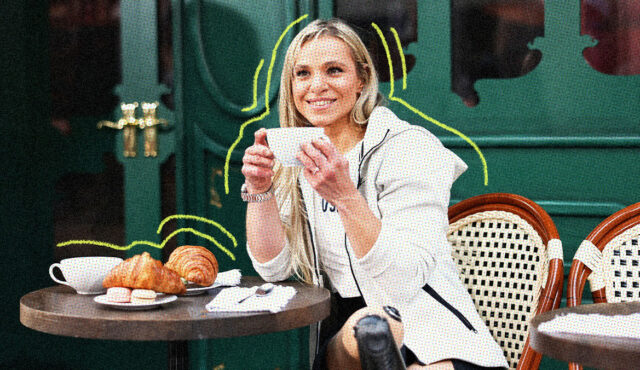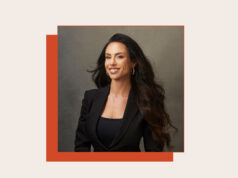Masters, who is heading to Paris for her seventh Paralympic Games in August, had an early life that began as a story of survival: She was born near Chernobyl, Ukraine, and faced many hardships due to radiation exposure. She endured multiple surgeries, living in an orphanage, and being adopted by an American—all before the age of 14—events that you might think would set her up to handle anything and guarantee mental resilience. And while she’s won 17 Paralympic medals across three sports, Masters still gets insecure.
“The mental aspect of training is not talked about much with athletes. You can train your body for weeks, but having the mental training and the toughness is the hardest part,” says Masters.
“The mental aspect of training is not talked about much with athletes. You can train your body for weeks, but having the mental training and the toughness is the hardest part.”
Masters competes in downhill skiing in the winter and road cycling in the warmer months, which means she has to be primed to compete year-round. And while staying fit throughout the year is tough, it’s the mental blocks she says she fights the most with training. A major culprit? Society’s expectations for both women and disabled people.
Masters strives to prove the naysayers wrong. “I have to show up the best I can be. People have told me that I can never do this, that I cannot ride a bike, ski downhill,” she says. “‘You have no legs.’ I let that motivate me and inspire me to want to prove them wrong.”
Whether you’re a competitive athlete or a weekend warrior, Masters offers four ways to train your mind to support your body.
The hardest thing is getting to the start of line—kind of
You’ve done the training, but toeing the line—whether it’s the start of a race or the beginning of another huge goal you’ve been working toward—can be mentally daunting. What Masters always likes to remember is that you’ll spend less time in your head during the competition or performance than you did during all the training to get there.
“Once you’re there, you can kind of relax,” she says. “You just let your body go into autopilot, there’s nothing more you can do, you just let your body do what it was trained to do.”
To get to that line, you have to trust your training and trust yourself. You may have uncontrollable variables come up (like injury or inclement weather), but Masters trusts that her body will do what it’s supposed to.
“Getting to the starting line is still hard for me, but I tell myself that I have to. People cannot ignore what I do,” she says. “I’m representing my country.”
Don’t count yourself out
For Masters, her biggest mental hurdle is not counting herself out when she has a setback or is sidelined because of an injury. Those injuries are often what cause that starting line anxiety—but even when she’s physically fit, Masters has to build herself up.
“I tell myself it’s okay. I know what it’s like to fail, and I know what it’s like to have the best race of your life,” she says. She also acknowledges that anxiety holds her back, which was a hard lesson to learn. “Honestly, I’m still learning that, because even when I’m done being a professional athlete, I’m still going to want to compare myself and push the boundaries of what’s possible.”
“For now, I’ll have to work to stay hungry, stay committed, and not get defeated by those setbacks and those uncontrollables. Instead, you have to use them as fuel to motivate you even more, come back to that next one even better.”
Count on second chances to do it right
“Patience is the hardest thing for me as an athlete,” Masters explains. “But at the same time, I’ve been very fortunate because I had to learn how to lose.” She didn’t make the 2008 Paralympic games, and she wouldn’t make the national team until years later. Then it took several Paralympic games before she earned her first gold medal.
“After constantly being second or third best, you learn resilience,” she says.
Keep a solid support system around you
When Masters can’t find the motivation within herself, she draws from loved ones most for inspiration. “I struggle with the expectations I put on myself. And I know that the anxiety is because I don’t want to let down my family, my coaches, my team, or my partners,” she says. “[But I also] feed off of the faith that they have in me.”
You can catch Oksana Masters competing in Para Road Cycling starting on September 4. All 22 Paralympic events will be available to stream on Peacock, and a select number of events will be airing on CNBC, USA Network, and NBC.
Our editors independently select these products. Making a purchase through our links may earn Well+Good a commission.











